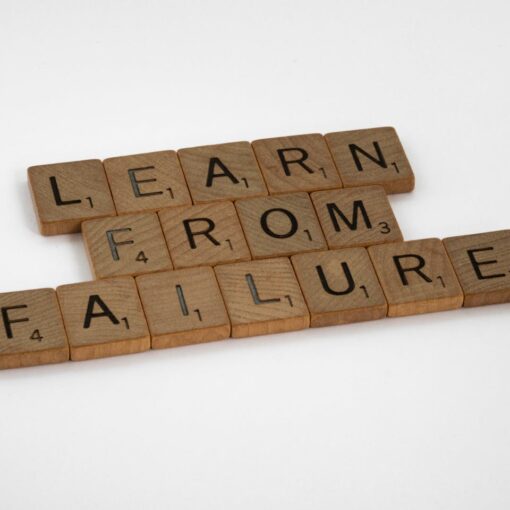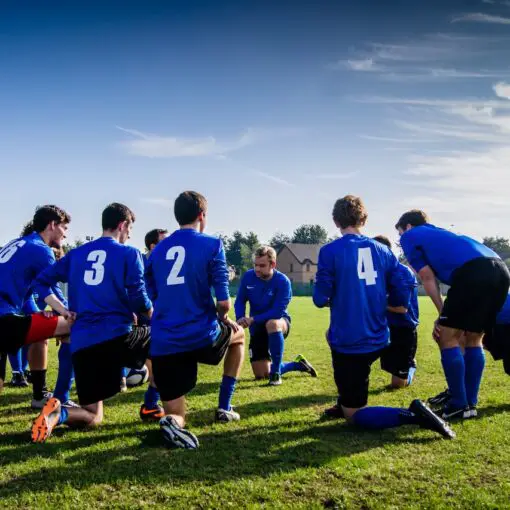In today’s fast-paced work environment, critical thinking skills are essential for success. By engaging in critical thinking exercises, employees can refine their ability to evaluate information, solve complex problems, and communicate effectively. These skills not only contribute to individual success but also promote a more innovative and productive work environment.
Critical thinking also plays a crucial role in leadership and management, as well as fostering effective teamwork. Managers who possess strong critical thinking skills are better equipped to guide their teams in problem-solving and decision-making processes. By incorporating critical thinking exercises into employee training, organizations can cultivate a culture that values innovation, creativity, and adaptability.
Key Takeaways
- Critical thinking exercises help employees develop problem-solving and communication skills.
- Strong critical thinking is essential for effective leadership, management, and teamwork.
- Fostering critical thinking in the workplace leads to a more innovative and productive environment.
Understanding Critical Thinking
Critical thinking is a vital skill for employees in the business world, as it enables individuals to analyze complex situations, identify biases, and make informed decisions through creative problem-solving methods. This cognitive process encourages a deeper understanding of problems and promotes the ability to approach them from multiple perspectives.
Developing critical thinking skills involves being aware of one’s own biases and working towards eliminating them. Bias can significantly impact how we approach problems and may result in making distorted decisions. By recognizing and addressing these biases, employees can harness their critical thinking abilities to make impartial and robust decisions in the business landscape.
One essential component of critical thinking is the ability to analyze information. This involves breaking down a problem into its constituent parts, understanding their relationships, and evaluating the significance of each element. Through thorough analysis, employees can gain a comprehensive view of the situation and consider various aspects before making well-informed decisions.
In the context of problem-solving, critical thinking encourages employees to explore new perspectives and think beyond conventional solutions. By adopting a creative approach, individuals can generate novel ideas and innovations, which can lead to improved business results and overall growth.
In conclusion, it is crucial for employees to develop and hone their critical thinking skills, as they enable individuals to navigate complex business environments effectively. By addressing biases, conducting robust analysis, and adopting creative problem-solving strategies, employees can make well-informed decisions that contribute to the success and longevity of the organization.
The Importance of Critical Thinking in the Workplace
Critical thinking is an essential skill for employees to possess in the modern workplace. It involves the ability to carefully and systematically analyze information, consider multiple perspectives, and make well-informed decisions. By enhancing decision-making abilities, critical thinking can lead to improved workplace performance and increased job satisfaction.
In the workplace, critical thinking allows for a more thorough evaluation of issues, helping to identify potential problems or opportunities. This is particularly important in today’s fast-paced, competitive environment, where companies need to stay ahead of industry trends and anticipate the needs of their customers. Employees who possess strong critical thinking skills can help their team effectively navigate the challenges that arise in any industry.
Furthermore, critical thinking plays a significant role in evaluating evidence and determining the credibility of information sources. Employees who can scrutinize data, identify patterns, and draw inferences can make more informed decisions and contribute to their team’s success. As a result, employers often seek to hire individuals with strong critical thinking abilities.
In a team setting, critical thinking helps facilitate productive discussions and collaboration. Members of a team who can effectively analyze situations, question assumptions, and remain open-minded to the opinions of others contribute positively to the decision-making process. This ensures that a diverse range of perspectives is considered, leading to better outcomes for the company.
Ultimately, developing critical thinking skills in employees is not just beneficial for the individual worker and their direct colleagues, but it also impacts the overall success of the organization. By fostering an environment that encourages the growth of critical thinking skills, employers can not only increase productivity but also create a more positive and engaged work culture.
Developing Critical Thinking Skills
Mindful Observation
Mindful observation is a valuable exercise for enhancing critical thinking skills. Encourage employees to take a step back and observe their surroundings, paying close attention to details that may have previously gone unnoticed. This practice helps employees develop the ability to analyze situations more thoroughly and interpret information more effectively.
Active Listening
Active listening is essential for effective communication and leadership. Encourage employees to practice active listening by giving their full attention to the speaker, avoiding interrupting, and providing constructive feedback. Active listening promotes the development of critical thinking skills by fostering open-mindedness, empathy, and understanding in the workplace.
Asking Questions
Asking questions is a key component of critical thinking, as it encourages employees to inquire deeper into subjects and analyze all aspects of an issue. Employers can foster a work environment that supports curiosity by encouraging team members to ask both open-ended and closed-ended questions and offering guidance when needed.
Assessing Evidence and Drawing Conclusions
Teaching employees how to evaluate evidence and draw informed conclusions is crucial for the development of critical thinking skills. Use thinking exercises that involve employees analyzing and evaluating various sources of information, ultimately forming an inference that leads to an informed decision. Pairing employees with a mentor is helpful for providing guidance and support throughout the process.
Recognizing and Managing Biases
Biases can greatly impact critical thinking and decision-making. Encourage employees to recognize their own biases and learn how to manage them effectively. Employees can benefit from understanding the impact of these biases on their thought process and how to minimize their influence to make objective, well-reasoned conclusions.
By incorporating these exercises and strategies into the workplace, employees can develop critical thinking skills that strengthen their overall performance, communication, and leadership abilities.
Critical Thinking and Communication
Critical thinking and communication go hand in hand in the workplace. Developing both skills can enhance employees’ ability to solve problems, make decisions, and work effectively in teams. By engaging in critical thinking exercises that involve clear communication and open discussion, employees can improve their cognitive abilities and interpersonal skills.
One exercise to improve critical thinking and communication is explaining a problem to someone else. This allows employees to fully understand a situation and consider all possible options for resolution. Encouraging employees to articulate their thought processes and rationale can lead to improved cognitive skills.
Another useful technique is group discussions, which can stimulate critical thinking and promote clear communication. By engaging in conversations where various perspectives are considered, employees can develop the ability to analyze information objectively and reevaluate their initial assumptions. Fostering open-mindedness and empathy for others’ viewpoints can also build strong communication skills in the workplace.
In addition to exercises, employees should continuously practice self-awareness. Becoming more conscious of their thought processes, values, ethics, and beliefs will enhance their critical thinking abilities. Developing self-awareness also encourages employees to reflect on their communication styles and identify areas that need improvement.
Implementing these critical thinking and communication exercises in the workplace can lead to more efficient problem-solving, enhanced team dynamics, and improved performance across the organization. By fostering a culture of open discussion and clear communication, employers can empower their teams to make well-informed decisions and excel in their respective roles.
Applying Critical Thinking to Problem Solving
Effective problem solving requires employees to utilize critical thinking skills. By carefully analyzing information, asking questions, and determining the best course of action, employees will be more likely to arrive at creative and innovative solutions to challenges.
A key aspect of critical thinking in problem solving is to question assumptions. Employees should be encouraged to identify any preconceived notions or biases that may be influencing their thought processes. This will help them approach the problem with a more open and objective perspective.
Another essential component is seeking alternative viewpoints, even if it means playing the devil’s advocate. By considering different perspectives and exploring various possibilities, employees will be better equipped to discover innovative solutions that might not have been immediately apparent.
Critical thinking also involves evaluating the effectiveness of potential solutions. Employees should be encouraged to analyze the pros and cons of each option, as well as consider any potential long-term impacts. This process can help identify the most viable and successful solutions for a given problem.
In order to foster a culture of critical thinking within the workplace, managers can provide support by encouraging employees to ask questions, challenge assumptions, and explore alternative perspectives. Additionally, providing opportunities for learning and growth can help employees further develop their critical thinking skills, ultimately leading to more effective problem solving and increased innovation.
In summary, critical thinking is essential for effective problem-solving at work. By questioning assumptions, exploring various perspectives, and evaluating potential solutions, employees can confidently recommend creative and innovative approaches to overcoming challenges. This will not only lead to better outcomes for the organization, but also foster a culture of continuous improvement and growth.
Critical Thinking in Leadership and Management
Developing critical thinking skills in leadership and management positions is crucial for making informed decisions, driving company growth, and ensuring employee satisfaction. By enhancing their cognitive abilities, leaders and managers become better at decision-making, hiring processes, and overall performance.
In the realm of leadership, critical thinking helps leaders to understand the logical relationships between ideas and recognize the importance of an argument. This enables them to identify mistakes in reasoning and make well-informed choices, thus driving superior organizational outcomes as mentioned here.
Certainly, nurturing critical thinking in management is essential for improving cognition. This includes decision-making skills, the ability to identify potential pitfalls, and dealing with complex situations. By integrating critical thinking into management practices, companies can boost employee engagement, improve workplace morale, and ultimately succeed in a competitive business landscape.
Incorporating critical thinking exercises into hiring processes allows employers to better assess candidates’ abilities objectively. By focusing on problem-solving and communication skills during the interview process, managers can identify high-potential talent who demonstrate strong critical thinking competencies.
Investing time in building and improving critical thinking skills not only benefits individuals but also the overall success of an organization. By supporting employees in developing their cognitive abilities, leaders and managers both play a crucial role in promoting a culture of critical thinking that will lead to better decision-making and stronger company performance.
In conclusion, fostering critical thinking in leadership and management enables better decision-making, more effective hiring processes, and improved organizational performance. Strong cognitive abilities empower leaders and managers to approach complex situations with confidence and clarity, driving overall growth and success.
Critical Thinking in Team Building
Incorporating critical thinking exercises within team building activities is essential for fostering creativity, collaboration, and problem-solving amongst employees. By engaging team members in activities that require them to consider multiple perspectives and work together to reach a conclusion, companies can significantly improve their team’s performance.
One effective critical thinking activity for team building is Debate It Out. In this exercise, teams are assigned a controversial topic and asked to come to a consensus. Participants must research and present opposing viewpoints, encouraging the consideration of multiple perspectives. This debate process encourages employees to challenge preconceived notions, question assumptions, and ultimately strengthen their critical thinking skills.
Another beneficial exercise involves conducting Reverse-engineering Google activities. In this scenario, participants work together to reverse-engineer a successful past project or campaign. This collaborative approach allows team members to learn from each other’s experiences, assumptions, and mistakes while analyzing the factors that contributed to the project’s success.
Brainstorming is another critical thinking team building activity that can generate diverse ideas and encourage innovation. By setting specific goals or challenges, team members collaborate to provide multiple solutions to a given problem. Encourage employees to think beyond the obvious answers, providing a safe space for innovative and unusual ideas.
In summary, promoting critical thinking within team building exercises is essential for strengthening collaboration, problem-solving, and decision-making skills. Implementing activities such as debates, reverse-engineering Google tasks, and brainstorming can foster robust critical thinking skills amongst team members and ultimately lead to improved team performance.
Evaluating Potential Job Candidates for Critical Thinking Skills
Screening for Critical Thinking
When evaluating potential job candidates, it’s important to assess their critical thinking skills as part of the hiring process. These skills are essential for both hard and soft skills, making them valuable across various roles and industries.
A vital step to measure critical thinking is through the initial screening process. To do this effectively, recruiters can utilize pre-employment tests that focus on evaluating candidates’ analytical skills, problem-solving abilities, and decision-making skills. These assessments can be administered online for a more efficient process while narrowing down the applicant pool.
In addition, it’s helpful to include open-ended questions on job application forms, which require a demonstration of critical thinking. For instance, candidates can be asked to provide examples of situations where they needed to use critical thinking skills to resolve a problem.
Assessing Analytical Skills during Interviews
During the interview stage, hiring managers have the opportunity to further evaluate a candidate’s critical thinking abilities. Incorporating critical-thinking interview questions can reveal valuable insights into their thought processes and how they approach problem-solving.
Asking situational and behavioral questions can provide excellent insight into a candidate’s analytical capabilities. Employers may ask questions that require candidates to analyze specific scenarios, or they may inquire about past experiences where candidates employed their critical thinking skills.
Using case studies or real-life scenarios during interviews is also an effective method for assessing critical thinking abilities. Presenting candidates with a complex problem or task can help gauge their skills in problem-solving, decision-making, and evaluation.
It’s essential to have a structured approach when evaluating candidates’ analytical skills, as it enables hiring managers to compare their abilities objectively. This will ultimately help them make informed decisions when selecting the best-suited candidate for the job.
By effectively screening and assessing job candidates’ critical thinking skills, companies can confidently hire employees with the necessary abilities to contribute successfully to their organization’s goals and vision.
The Role of Emotional Intelligence in Critical Thinking
Emotional Intelligence (EI) plays a significant part in facilitating critical thinking skills for employees. EI is defined as the ability to understand and manage one’s emotions, as well as recognizing and influencing the emotions of others. In the context of critical thinking, high emotional intelligence allows individuals to be more reflective and open to different perspectives.
A key aspect of emotional intelligence in critical thinking is self-awareness. When employees are aware of their own emotions and biases, they can step back and reflect on their thoughts and decisions objectively. By doing so, they are better able to analyze and evaluate various media and sources of information, leading to more informed decisions.
Emotional intelligence also helps employees consider the ethical implications of their decisions. With a heightened understanding of emotions, individuals are more likely to empathize with others and take their perspectives into account. This ability enables them to navigate complex ethical dilemmas and make fair judgments that adhere to the organization’s values.
Moreover, employees with high emotional intelligence can easily adapt to different perspectives and opinions. They demonstrate a willingness to engage in meaningful dialogues with co-workers and are receptive to feedback. This collaborative spirit nurtures a culture of learning and continuous improvement, fostering an environment in which critical thinking can thrive.
In summary, emotional intelligence plays a crucial role in enhancing critical thinking skills among employees. By being aware of their emotions and biases, reflecting on decisions objectively, considering ethics, and embracing diverse perspectives, individuals with high emotional intelligence contribute enormously to creating a productive and innovative workplace.
Fostering an Innovative Work Environment through Critical Thinking
Promoting Open Discussions
One way to encourage innovation in the workplace is by promoting open discussions. These encourage employees to share their ideas and contribute to the collaborative push for creative solutions. When a culture of open communication is established, employees feel valued and are more likely to take risks, making it easier for them to come up with innovative solutions. Conducting regular brainstorming sessions and encouraging the exchange of opinions during meetings can further enhance the creative thinking process.
Encouragement of Reflective Practice
Another essential aspect of fostering an innovative work environment is the encouragement of reflective practice. Reflection allows employees to learn from their experiences and identify areas for improvement. By consistently implementing reflective practices, employees can develop a better understanding of their thought processes, leading to more confident and knowledgeable decision-making. This can be done through regular self-assessments, group discussions, or by providing constructive feedback from managers and peers.
By focusing on open discussions and reflective practices, businesses can effectively nurture a culture of critical thinking and creativity, leading to more innovative solutions and long-term success in the ever-changing business landscape.
Conclusion
Enhancing critical thinking skills in the workplace is an essential step towards cultivating a culture of effective decision-making and problem-solving. By engaging in various training exercises, employees can strengthen their ability to analyze situations, interpret data, and make informed choices.
Introducing critical thinking exercises into an organization demonstrates the company’s commitment to fostering employee growth and harnessing their full potential. Such exercises are not only beneficial in honing analytical and problem-solving skills, but also in improving communication, collaboration, and adaptability among team members.
Incorporating critical thinking training into existing programs can lead to a more efficient and productive workplace. Employees with strong critical thinking skills are better prepared to face challenges, remain flexible and adaptive to changes in the market, and contribute positively to an organization’s overall success. By prioritizing critical thinking development, businesses can invest in their employees and, in turn, reap the benefits of a well-equipped workforce.
Frequently Asked Questions
What are effective group exercises to improve critical thinking?
There are various group exercises that can help improve critical thinking skills among employees. One example is the Socratic questioning technique in which a facilitator poses a series of questions designed to uncover assumptions and stimulate critical thinking. Another effective activity is the “Case Study Analysis,” where employees are tasked with analyzing real-life business scenarios to identify challenges, gather data, and make informed decisions.
How can team building games enhance critical thinking skills?
Team building games can be an engaging way to enhance critical thinking skills. These games often require collaboration, problem-solving, and decision-making under pressure, which can help participants sharpen their analytical abilities. Incorporating team-building exercises that promote critical thinking into regular team meetings or training sessions can create an environment of intellectual growth and mutual support.
What are some fun activities to develop critical thinking in adults?
Fun activities for adults aimed at developing critical thinking skills might include puzzles, escape room games, and debate clubs. These activities encourage individuals to challenge their assumptions, think outside the box, and use logical reasoning, ultimately improving their cognition and problem-solving abilities.
How can a workbook aid in critical thinking development?
A workbook designed for critical thinking development typically contains structured exercises, real-world examples, and reflective activities. These materials guide individuals through a step-by-step process of improving their critical thinking skills by encouraging self-awareness, fostering curiosity, and promoting constructive feedback. Using a workbook can provide an organized and personalized approach to enhancing critical thinking abilities.
What are the top 5 skills essential for critical thinking?
The top 5 skills essential for critical thinking include:
- Analytical thinking: The ability to break complex problems into smaller, manageable components.
- Evaluation: Assessing information and making judgments based on evidence and reasoning.
- Problem-solving: Identifying challenges and proposing effective solutions.
- Creativity: Generating innovative ideas, insights, and approaches.
- Communication: Articulating thoughts clearly and persuasively to convey complex ideas to others.
How can virtual activities benefit employees’ critical thinking?
Virtual activities can be an effective way to enhance critical thinking skills for remote or hybrid teams. Online tools and platforms can facilitate group discussions, brainstorming sessions, and collaborative problem-solving exercises, allowing employees to engage with diverse perspectives and develop their critical thinking skills. Employing virtual critical thinking activities can create an inclusive environment, encouraging employees to learn from each other, and adapt to changing circumstances.





